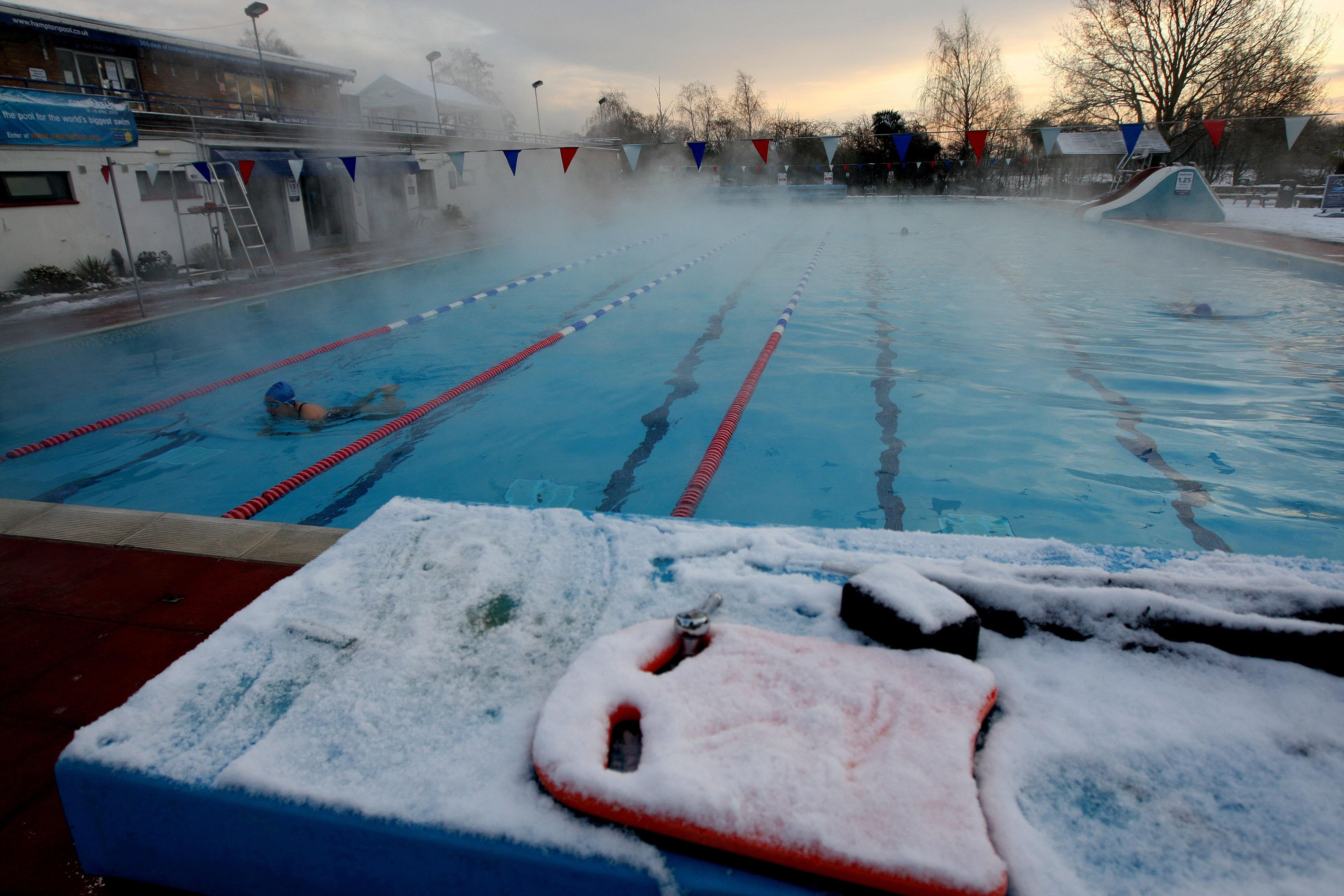Icy swim may cut ‘bad’ body fat but further health benefits unclear – study
Researchers say it is uncertain whether or not winter swimmers are naturally healthier.

Taking a dip in icy water may cut bad body fat in men and reduce the risk of disorders such as diabetes, a new study suggests.
Researchers looked at 104 studies and found that many reported significant effects from cold water swimming, including also on good fat which helps burn calories.
They suggest this may protect against obesity and cardiovascular disease.
But the review was inconclusive overall on the health benefits of cold-water bathing, an activity that is gaining popularity.
From this review, it is clear that there is increasing scientific support that voluntary exposure to cold water may have some beneficial health effects
It is unclear whether or not winter swimmers are naturally healthier, says the research team from UiT The Arctic University of Norway and from the University Hospital of North Norway.
Lead author James Mercer, from UiT, said: “From this review, it is clear that there is increasing scientific support that voluntary exposure to cold water may have some beneficial health effects.
“Many of the studies demonstrated significant effects of cold-water immersion on various physiological and biochemical parameters.
“But the question as to whether these are beneficial or not for health is difficult to assess.
“Based on the results from this review, many of the health benefits claimed from regular cold exposure may not be causal.
“Instead, they may be explained by other factors including an active lifestyle, trained stress handling, social interactions, as well as a positive mindset.
“Without further conclusive studies, the topic will continue to be a subject of debate.”
The review indicated a positive link between cold water swimming and brown adipose tissue (BAT), a type of good body fat that is activated by cold.
BAT burns calories to maintain body temperature, unlike “bad” white fat which stores energy.
The study found that cold exposure in water – or air – appears to also increase the production of the protein adiponectin by adipose tissue.
This protein plays a key role in protecting against insulin resistance, diabetes and other diseases.
According to the findings, repeated cold-water immersions during the winter months significantly increased insulin sensitivity and decreased insulin concentrations.
A lot of the available research involved small numbers of people, often of one gender, and with different water temperature and levels of salt.
The new study reports that weight loss, better mental health, and increased libido are among numerous health and well-being claims made by followers of regular cold-water immersion or arising from anecdotal cases.
It can take many forms such as swimming in cold water during the winter, and is the subject of growing interest worldwide.
The main aim of the review was to determine whether voluntary exposure to cold water has health effects in humans.
Researchers excluded studies where people wore wetsuits, accidental cold-water immersion, and water temperatures greater than 20 degrees centigrade.
However, they say that education is also needed on the health risks associated with taking a dip in icy water.
These include the consequences of hypothermia, and of heart and lung issues which are often related to the shock from the cold.
The findings are published in the International Journal of Circumpolar Health.
Bookmark popover
Removed from bookmarks